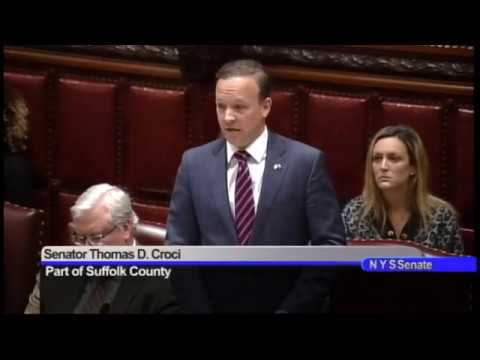
College debt: Would a loan by any other name cost quite so much?
Kathleen Moore
May 8, 2022
Originally published in the on Times Union on May 08, 2022.
In an effort to get creative on the intractable problem of college loan debt, state Senators have hit the dictionary.
They wrote a bill redefining the word “debt.”
Items that aren't debt, in the bill, include: “tuition, fees, room and board, educational benefit overpayments, student loans, or other such charges incurred by a student in furtherance of such student's education.”
It passed in the Senate, after an amendment that specified the point of the exercise: to stop assessing 22 percent interest on people who couldn’t pay their school loans.
It has not been sponsored in the Assembly. With just 12 working days over the next month left in the session, it’s unlikely to be enacted this year. The Assembly has referred it to its Ways and Means Committee and the legislation could be reintroduced at the start of the next session.
Bill sponsor Sen. Jamaal Bailey, D-Bronx, plans to keep campaigning for it to become law.
“Introducing legislation simply for the point of introducing it does nothing,” he said. “This is the time for the conversation. We can meet the moment.”
As he argued on the floor, charging 22 percent interest didn’t make sense. People in default clearly couldn’t pay what they owed before the interest was tacked on, he said.
“Why should we be causing more economic harm?” he said. “Why do we want to compound a mistake people make?”
Currently, the Attorney General’s Office must sue and try to collect on defaulted school loans.
So senators and Attorney General’s staff started brainstorming solutions.
The purpose of the bill was to stop the state from assessing 22-percent interest on defaulted school loans – as required for all debts in default. To keep students from being charged that interest, the Senate decided school loans are not debt. (Car loans, mortgages and anything else for which people borrow money remain debt.)
“Just kicking around ways: What can we do to support our students?” he said. “When you change the definition of debt, over time I think that can be an important step to limit costs.”
Share this Article or Press Release
Newsroom
Go to NewsroomDennis O'Doherty, Sr.
May 15, 2018

A Statement for NYS Senator Tom Croci
May 2, 2018
Pat Matthews
April 27, 2018

